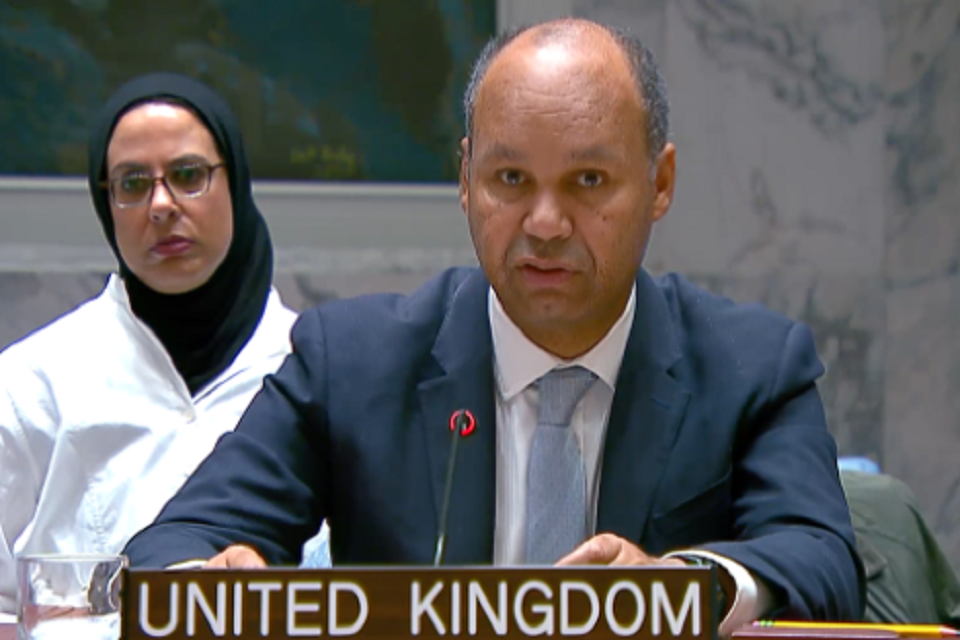All parties must respect the ceasefire and commit to de-escalation: UK statement at the UN Security Council
Statement by Ambassador James Kariuki, UK Deputy Permanent Representative to the UN, at the UN Security Council meeting on the Great Lakes.

The United Kingdom welcomes August’s ceasefire agreement, achieved thanks to the continued and dedicated mediation efforts of President Lourenço of Angola.
We now call on the parties to seize this opportunity to produce detailed action plans outlining how and when the commitments made under the Luanda Process will be met, and to begin their implementation.
During his recent visits to Angola, DRC and Rwanda, the UK Minister for Africa and the United Nations, Lord Collins of Highbury, stressed the importance of all parties engaging in political dialogue.
We are concerned by reports of ceasefire violations, while negotiations continue. The ceasefire must be respected. The UK calls on all parties to the conflict, including non-state actors, to commit to de-escalation.
President, in June the UK hosted a high-level roundtable on “Mutual Prosperity in Africa’s Great Lakes Region” at Wilton Park, in partnership with Special Envoy Xia, the Netherlands and Switzerland.
This roundtable brought together stakeholders from around the region to discuss practical steps to improve economic integration, help build confidence and build momentum towards peace.
Potential areas of cooperation include harmonising standards, formalising informal trading networks, improving infrastructure and supporting female traders.
This event was a timely reminder of the huge opportunities for regional economic integration that could be unlocked by a peaceful resolution to the conflict in DRC. We will continue to take forward this work through the International Contact Group.
Finally, President, the UK is concerned by disease outbreaks across the region, including Mpox in DRC and Marburg Virus Disease in Rwanda. The UK is working to support the World Health Organization and national governments to tackle these outbreaks. Regional conflict saps national capacity and resources and limits interstate cooperation, making it more difficult to tackle epidemics.